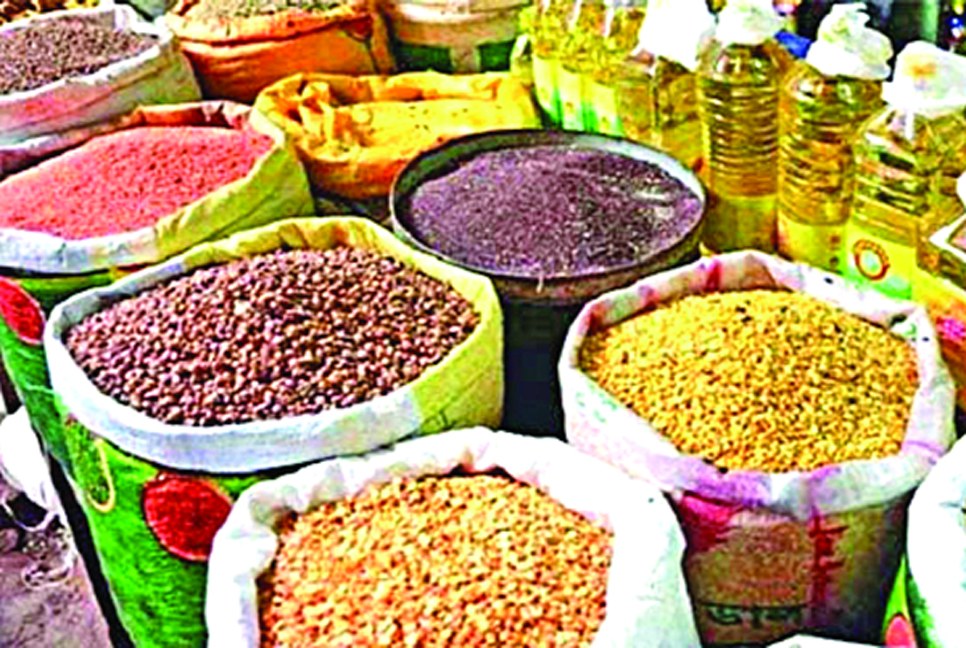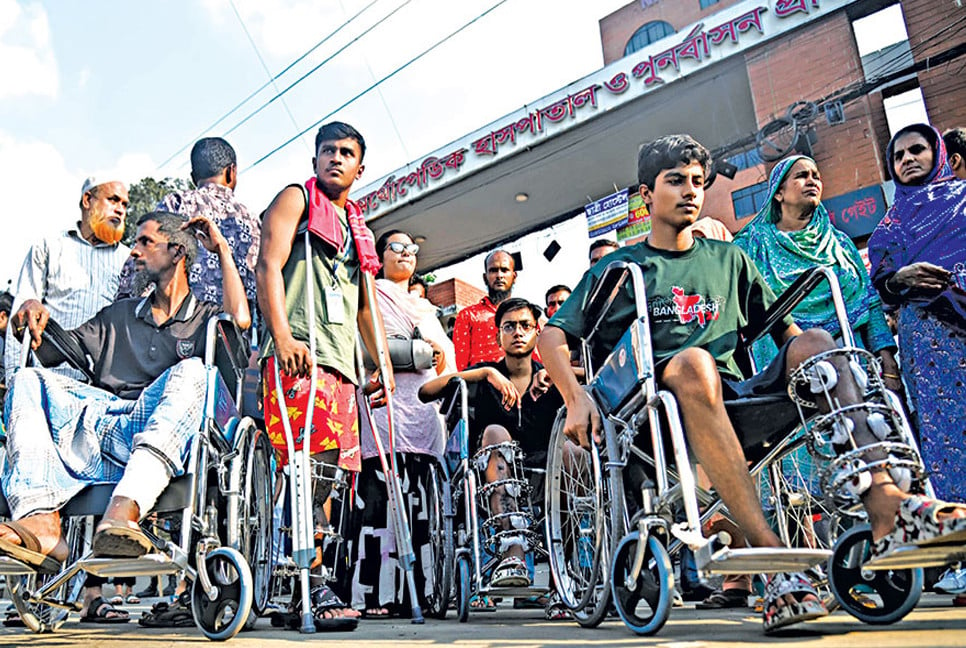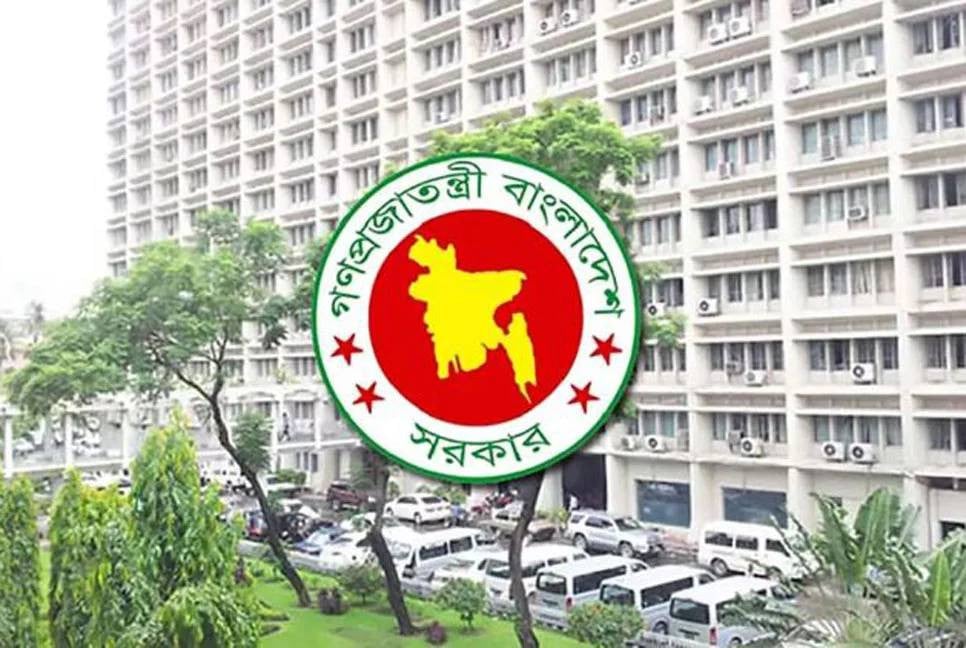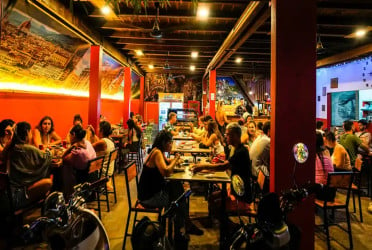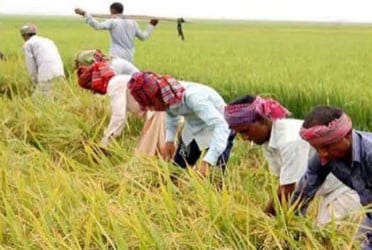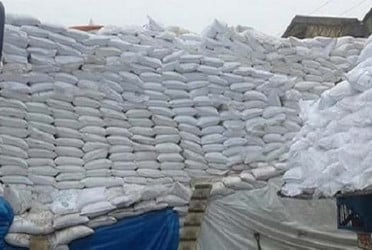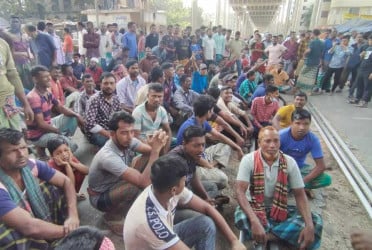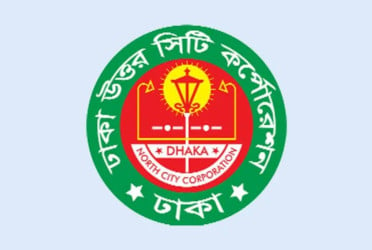The holy month of Ramadan is knocking on the door and the Friday was last Friday before the Ramadan. So, most of the Muslims tried to make advance purchase ahead of Ramadan. However, alike past, the consumers aren’t tension-free about commodity prices in upcoming Ramadan.
Most of the buyers complained over the excess prices of commodities as the prices of maximum products in kitchen market were increasing. Especially, goods like potatoes, local garlic, egg plants, chicken, meat and peas are sold at higher prices. The prices of dates and sugar were also increased. The customers complained that even though the government promised to keep the prices in control, it wasn’t seen in practice yet. According to the consumers, the prices are on the rise due to increasing demand of the commodities.
From the field visit in Mirpur 1 kitchen market, it has been found that prices of some vegetables were decreased, among which there’re beans, lentils, and chickpeas. Their prices were decreased from Tk 20 to Tk 60. However, due to the increasing demand of some items ahead of Ramadan, their prices were increased. For example, the prices of potatoes and egg plants were increased from Tk 5 to Tk 20. The prices of other items remained unchanged.
Looking around the market, it has been found that the price of beans is Tk 60, tomato 50, onion sprouts 40, beans 80, white radish 60, country carrot 40, long brinjal 80, cucumber 60 to 80, milk 40, Uchche 100, corolla 160, papaya 40, sweet pumpkin 30, Dherdas 100, Patol 100, Chichinga 60, Dhundal 60, Barabti 120, Kachur Lati 100, Sajina Danta 200, Kachurmukhi 120, Green Chilli 100 and Coriander leaves are being sold at Tk 120 per kg. In addition, gourd is being sold at Tk 100 per piece, cauliflower at 50, cabbage at 50. Sajib Ahmed, a school teacher who came to the market, told The Bangladesh Pratidin, "The government said that the price of daily commodities will be bearable during the Ramadan. But I don't see any hint of that in reality. On the contrary, the prices of vegetables which are used more during fasting have been increased. Common buyers like us are forced to buy things at higher prices.”
NGO worker Shafinaz Sharifa expressed a lot of anger and said, "Half of the market's budget has been exhausted while buying vegetables. I don’t know how I would buy meat and fish.”
Vegetable sellers have a different tone. They say that most of the customers want to buy all the products at once on the eve of Ramdan. This increases the demand for certain products in the market. Realizing this attitude of the buyers, the wholesalers also increase the prices of the goods. Such a situation would not have happened if the buyers had bought the product in combination before and after.
Furthermore, local onions are priced at Tk 90 to 110 per kg, red and white potato 35, new desi garlic 150, Chinese garlic 200, Indian ginger 220, and Chinese ginger at Tk 200. Compared to last week, the price of local garlic was increased by Tk 10 and the price of potato has increased by Tk 5. And small lentils are ppriced at Tk 140, thick lentils 110, big mugdal 150 to 160, small mugdal 160 to 180 and chickpeas are being sold at Tk 110 to 115,
From field visit, it’s found that sugar is being sold at high prices in the markets of the capital. Traders fear that the price of sugar may increase further. Even though the duty has been reduced, the price of sugar has been increased by Tk 10 and is being sold at Tk 140 to Tk 150. However, prices of various products in grocery stores remain unchanged. On Friday, bottled soybean oil was sold at Tk 163 per liter, open soybean oil at Tk 149, 2 kg packet flour at Tk 150, 2 kg packet of flour at Tk 130, open mustard oil at Tk 190 per liter. In this case, the price of bottled soybean oil has decreased by Tk 10 per litre.
The price of dates used in Iftar has also been increased by Tk 100 to Tk 400 per kg. The price of 1 kg of ordinary quality dates in the market now is Tk 350 to Tk 400. Last year before fasting, dates of this variety were Tk 200 to Tk 220 per kg. Apart from this, good quality dates prices were increased from Tk 800 to Tk 1200, which was a little more than Tk 400 in the last Ramadan.
In the market on Friday, hilsa fish was sold at from Tk 1400 to 2200, rui fish 380 to 550, katle fish 400 to 700, kaliboush 500 to 1000, shrimp 600 to 1200, koi 600 to 1200, pabda 500 to 800, horn fish 400 to 1200 , Tengra 600 to 1000, Boal 700 to 1400, Rupchanda 1000 to 1200, Shoal from 700 to 1200 taka per kg.
All types of meat are being sold at high prices in the market. The price of domestic chicken was increased by Tk 180. On Friday, broiler chicken was sold at Tk 220, local chicken at Tk 500 to Tk 680, beef at Tk 750 to Tk 780 per kg. Red chicken eggs are being sold at Tk 135 per dozen and white eggs at Tk 125. At other times, broiler chicken was sold at a higher price on Friday, though it was priced less than Tk 200. The same is the case with cockerels. Although it was sold within Tk 300, it was sold at a higher price on Friday.
(The report was published on print and online versions of The Bangladesh Pratidin on March 9 and rewritten in English by Lutful Hoque Khan)

